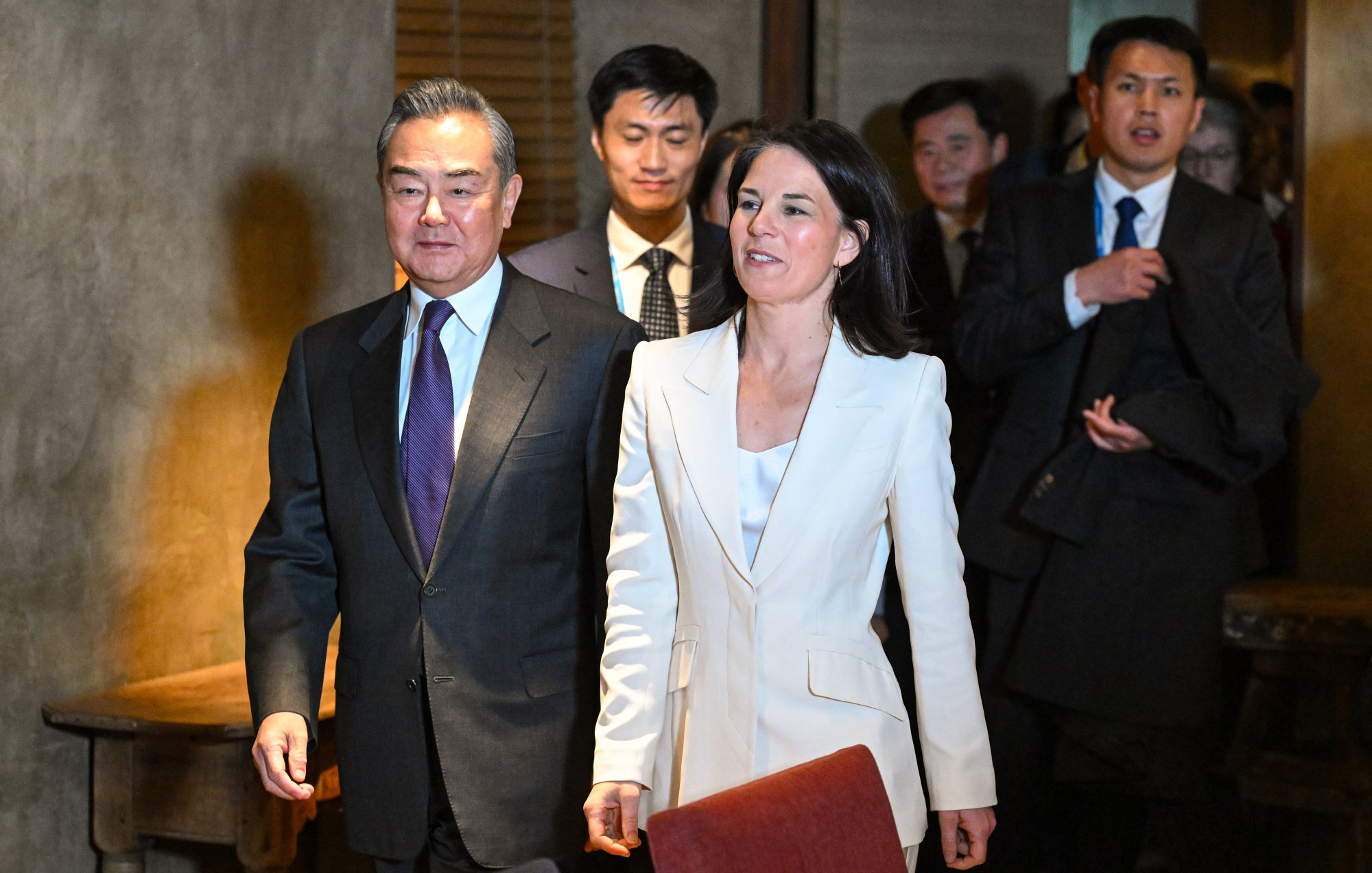China, Germany should stick to ‘openness and free trade’ and keep policy ‘predictable’, Wang Yi says
“The current international situation is facing a difficult time, and Germany is willing to work with China to play an active role in maintaining peace and stability,” Scholz said, according to the Chinese readout.

Wang also held talks on Saturday with his German counterpart Annalena Baerbock, who called for more cooperation “in areas of common interest”.
“Germany is willing to work with China to … carry out consultations on regional affairs, and strengthen cooperation in addressing climate change and smooth international trade routes,” Baerbock said.
It comes at a time of strained relations between China and Germany – the world’s second and third largest economies, respectively.
The Scholz government in July unveiled its first ever China strategy, which labelled the country as a “systemic rival”, echoing the European Union’s language that China was “an economic competitor and a systemic rival”.
It also urged German companies and investors to de-risk their economic dependence on China, the country’s single largest trading partner.
The new policy also raised concerns over what Foreign Minister Baerbock called “unfair competition” from China, and called for a “level playing field” for German and Chinese businesses.
Beijing has rejected calls in the West to reduce dependency on China, with Premier Li Qiang in June saying it was a “forced proposition”.
But despite concerns over geopolitical tensions and the Chinese economy – and pressure from Chinese rivals in industries once dominated by Germany like carmaking – German investment in China actually increased last year.
German direct investment in China rose by 4.3 per cent to a record €11.9 billion (US$12.8 billion) in 2023, according to a report by the German Economic Institute based on data from the Bundesbank. It concluded there was “no trend” of diversification away from China.
China was also Germany’s most important trading partner in 2023 for the eighth consecutive year, with goods worth €253.1 billion traded between the two countries, according to official German data.